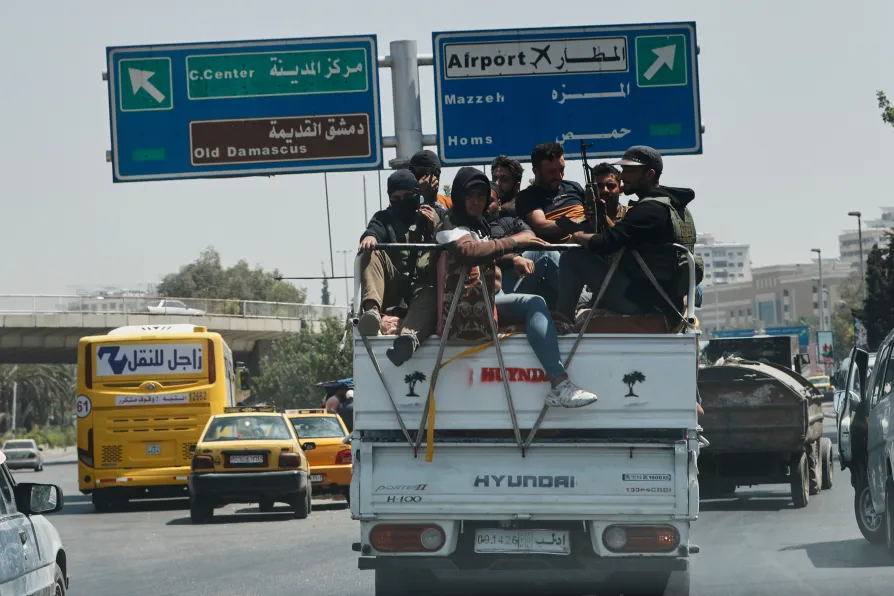
 Armed Bedouin fighters ride in the back of a pickup truck as they return from the southern province of Sweida to Damascus, Syria, July 19, 2025
Armed Bedouin fighters ride in the back of a pickup truck as they return from the southern province of Sweida to Damascus, Syria, July 19, 2025
SYRIA’S armed Bedouin clans announced their withdrawal from the southern city of Sweida today following more than a week of clashes, following a US-brokered ceasefire.
The fighting between Druze religious minority and Sunni Muslim clan militias killed hundreds and threatened to unravel Syria’s already fragile post war transition.
Israel also launched dozens of air strikes in the Druze-majority Sweida province, targeting government forces who had effectively sided with the Bedouins.
An initial series of tit-for-tat kidnappings sparked clashes in various towns and villages in the province, which later spread to the city.
Government forces were redeployed to halt renewed fighting that erupted Thursday, before withdrawing again.
The country’s jihadist interim president, Ahmad al-Sharaa, who was more sympathetic to the Bedouins, had tried to appeal to the Druze community while remaining critical of the militias.
He later urged the Bedouins to leave the city, saying that they “cannot replace the role of the state in handling the country’s affairs and restoring security.”
“We thank the Bedouins for their heroic stances but demand they fully commit to the ceasefire and comply with the state’s orders,” he said in an address broadcast Saturday.
The Bedouins’ withdrawal brought a cautious calm to the area, with humanitarian convoys reportedly on their way.
The Syrian Red Crescent said at the weekend they were sending 32 trucks to Sweida loaded with food, medicine, water, fuel and other aid, after the fighting left the province with power cuts and shortages.
Syrian state media SANA said the Health Ministry was also sending a convoy of trucks.
US special envoy to Syria Tom Barrack said: “All factions must immediately lay down their arms, cease hostilities and abandon cycles of tribal vengeance.”
Dozens of Druze civilians have been killed in a series of targeted attacks in the city at the hands of both Bedouin fighters and government forces.
Videos have also surfaced online of fighters destroying portraits of Druze religious officials in homes, and shaving the moustaches of elderly Druze, seen as an insult to culture and tradition.
Druze militiamen in return attacked Bedouin-majority areas in the outskirts of the province, forcing families to flee to the neighbouring Daraa province.
More than half of the world’s roughly one million Druze live in Syria, with most of the rest living in Lebanon and Israel, including in the Golan Heights, which Israel captured from Syria in 1967 and annexed in 1981.










